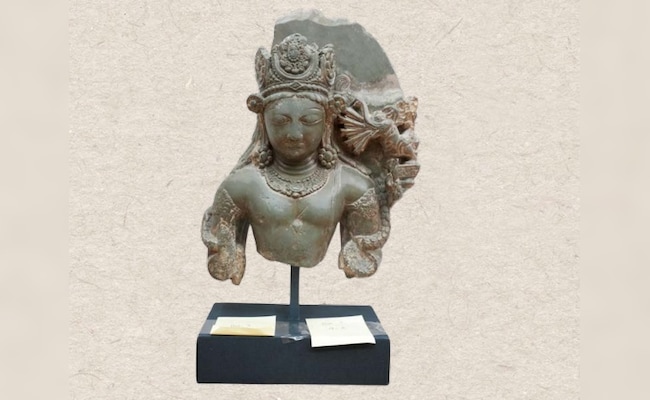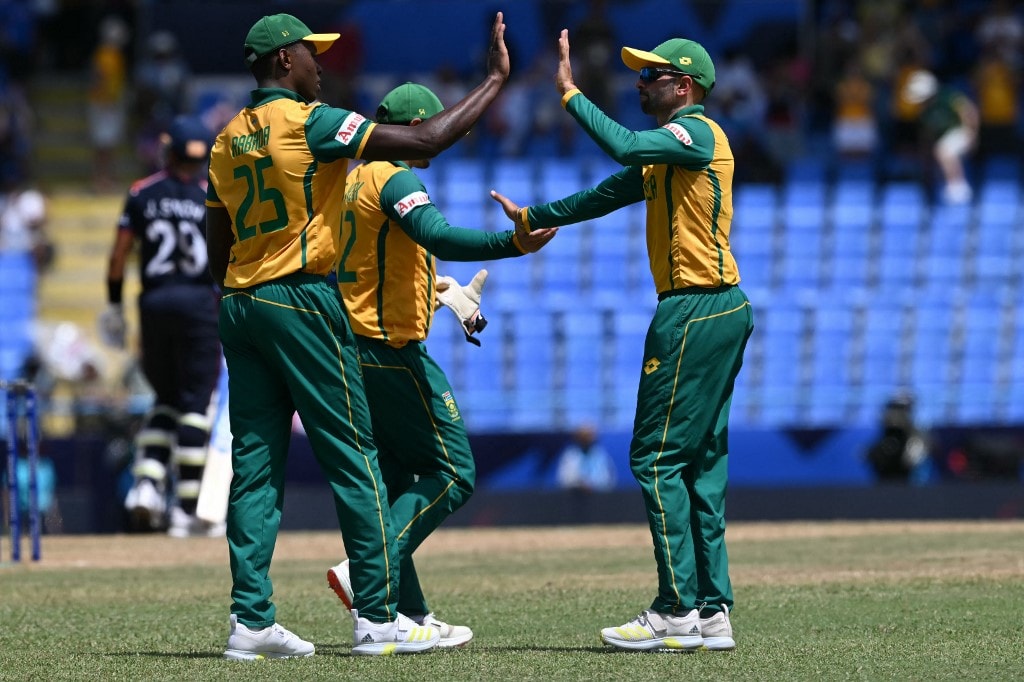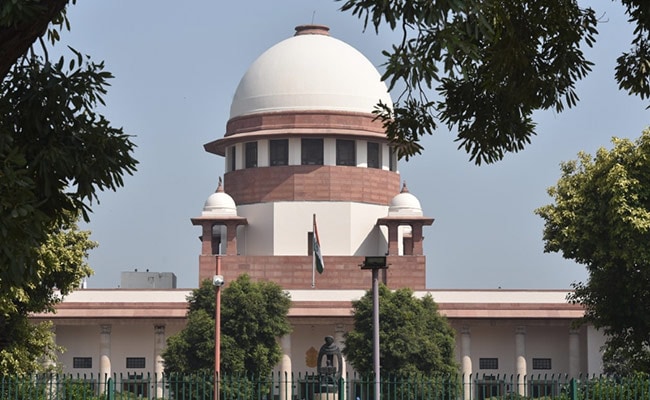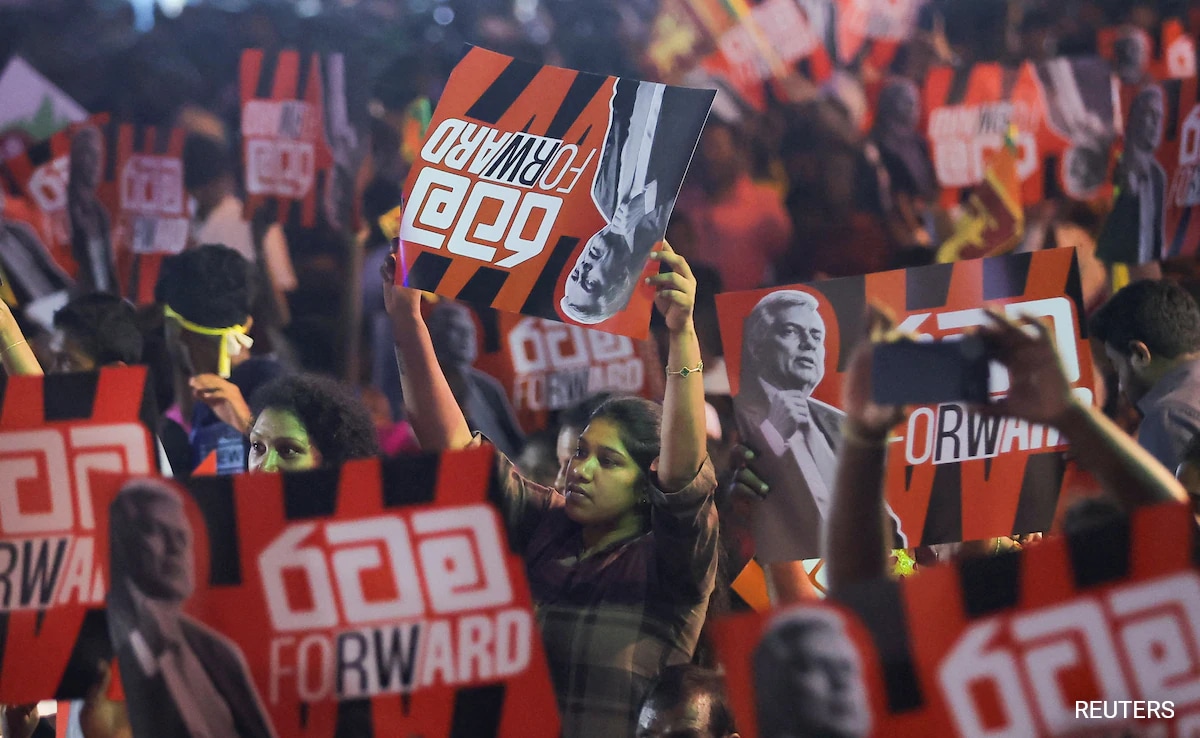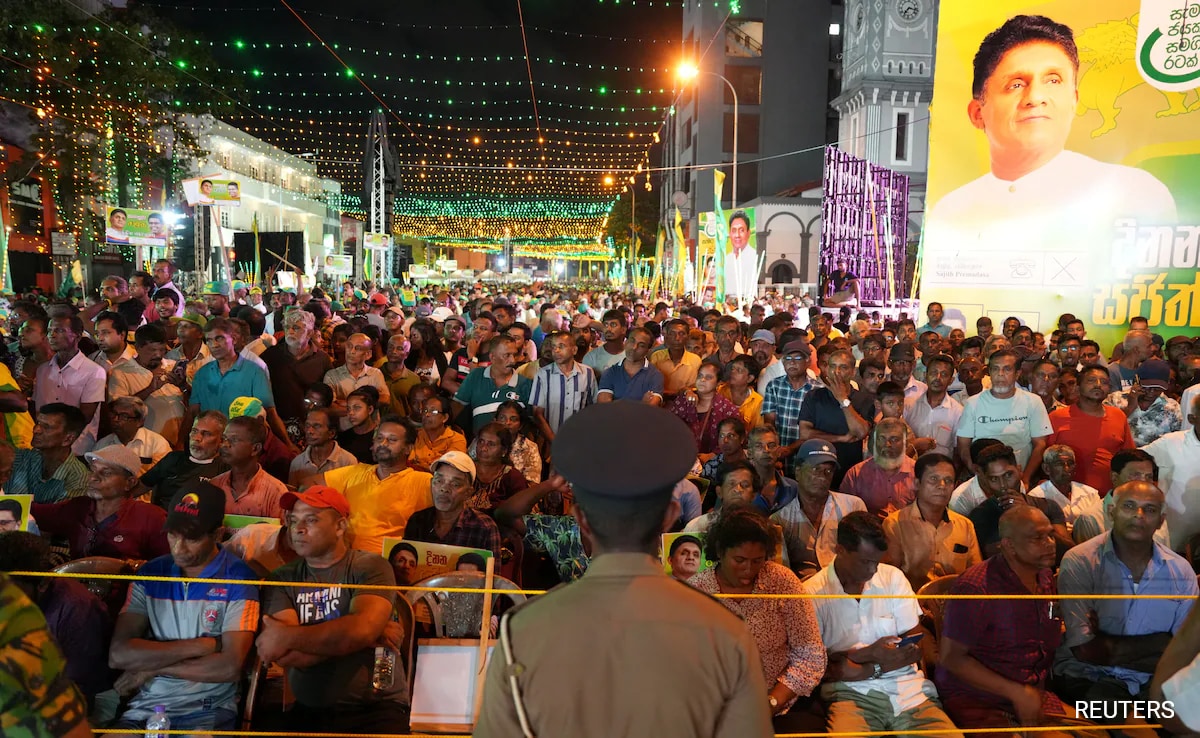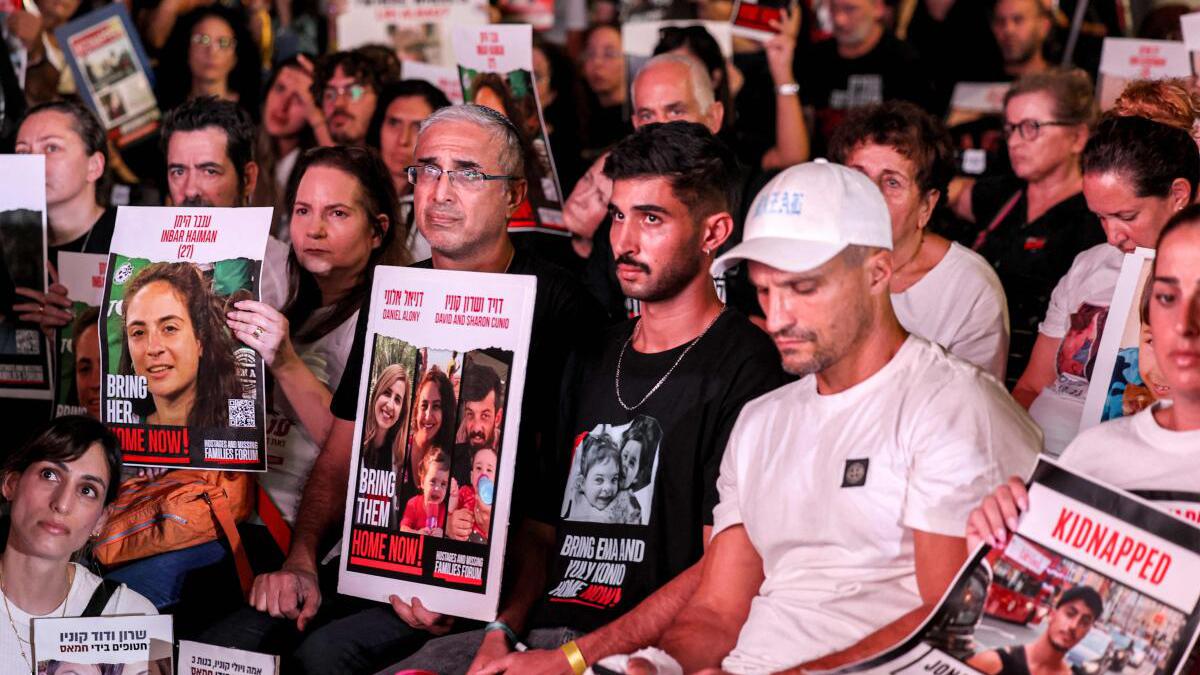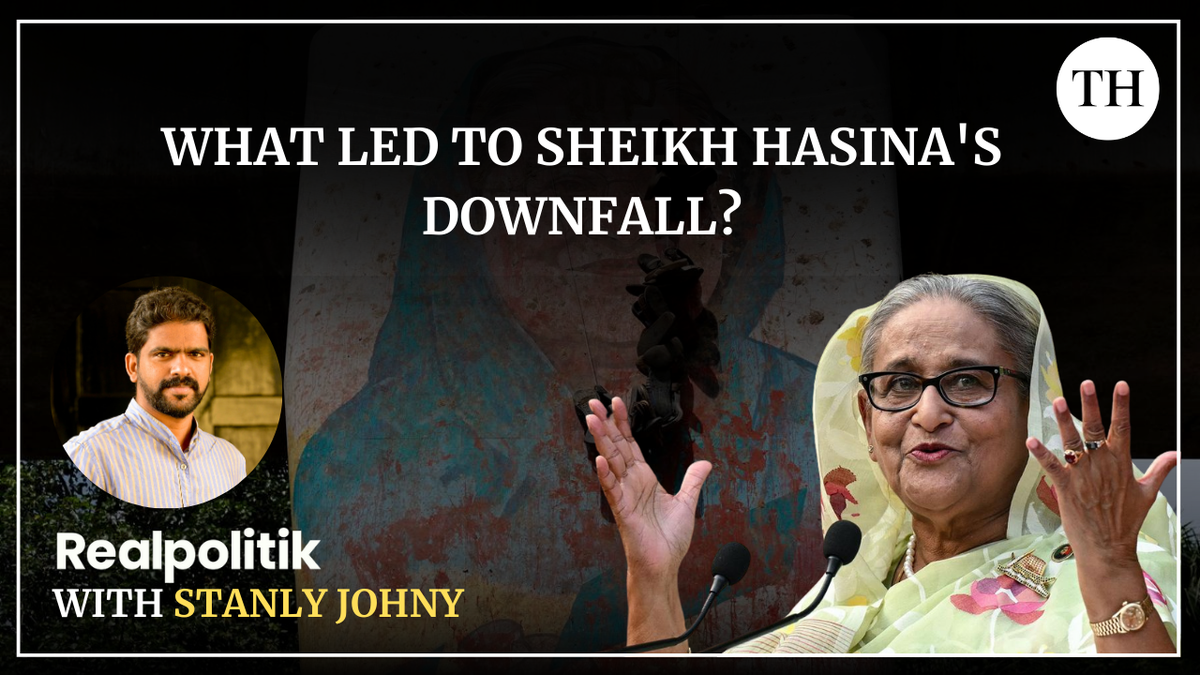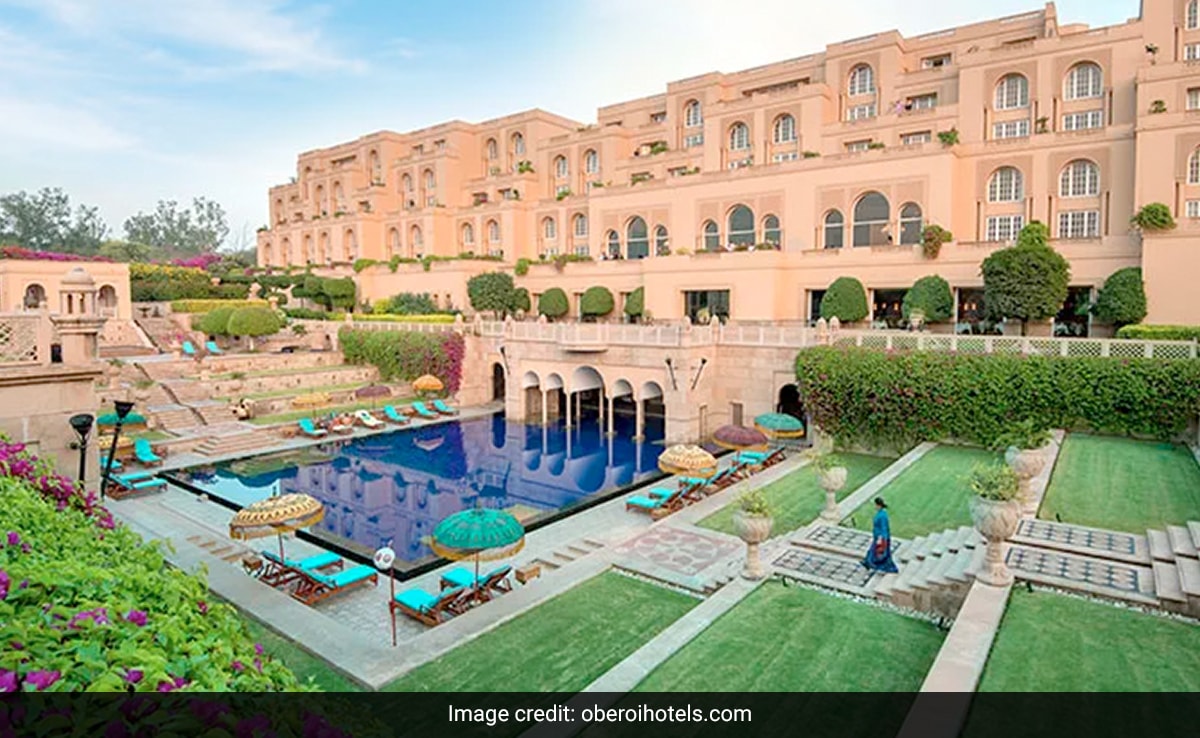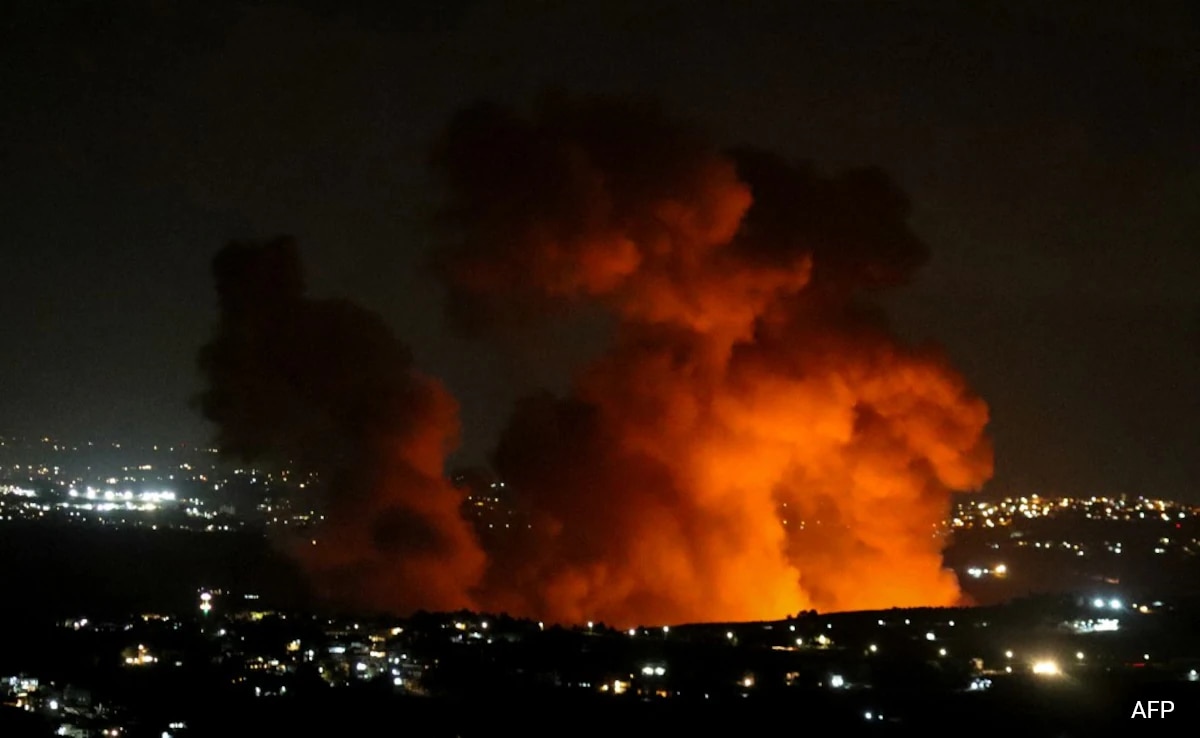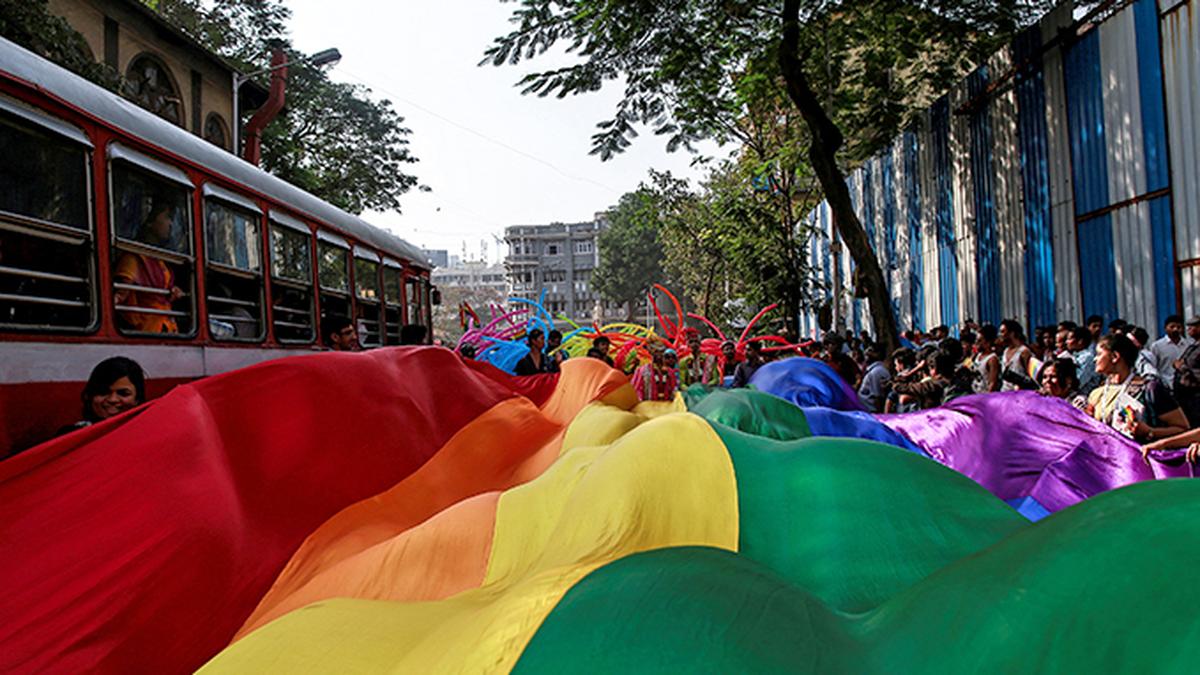Supporters of Sri Lanka’s president Ranil Wickremesinghe attend his final election campaign rally.
Colombo:
Sri Lanka, which is slowly recovering from its worst-ever economic crisis, will vote to elect the next President on Saturday. The cash-strapped island nation is currently being led by President Ranil Wickremesinghe, who is seeking a re-election to continue with bold reforms to help revive the economy.
President Ranil Wickremesinghe, 75, is seeking a fresh mandate after claiming credit for stabilising the economy and bringing an end to months of food, fuel and medicine shortages.
In 2022, when Ranil Wickremesinghe took charge as President, Sri Lanka was dealing with civil unrest spurred by the economic crisis. There were protests across the nation which led to thousands storming the Presidential palace which was then occupied by Mr Wickremesinghe’s predecessor Gotabaya Rajapaksa, who fled the country. Mr Wickremesinghe took charge and restored calm and helped revived the economy by taking some tough decisions.
The 2024 election is key to deciding the future of reforms in the economically fragile nation.
Speaking with NDTV, Sri Lankan President Ranil Wickremesinghe said on Thursday that his vision for future ties with India holds a stronger economic relationship. “We want to encourage more investments from India and more tourists from India. We are working together with India on infrastructure projects like the Trincomalee Harbour,” he said.
“I took over as President when the country was in utter chaos and no one thought we could stabilise this fast. But I knew from experience that we could go ahead provided we had the support of the International Monetary Fund and our creditors,” the President said, adding that “I have ensured we come back to normalcy. Law and order is functioning, democracy is functioning and although we have stabilised the economy, now we have to decide our path. Are we going to get into the same old ways or are we working towards (building) a strong export economy? I have asked for a mandate to go ahead.”
However, Mr Wickremesinghe faces a tough electoral battle from two contenders. In total, President Wickremesinghe is among 38 candidates contesting Sri Lanka’s presidential election.
This year’s election is dominated by two major alliances, the SJB (Samagi Jana Balawegaya) and the NPP (National People’s Power), apart from various smaller parties and independent candidates.
Here are the 5 main contenders in the 2024 Sri Lanka Elections:

75-year-old Ranil Wickremesinghe is a lawyer who has served as prime minister for a record six times. His party holds only one seat in parliament and will need to drum up support from key parties to bolster his chances.
As the leader of the United National Party or UNP, he took office in July 2022 after widespread protests unleashed by the debilitating financial crisis forced his predecessor Gotabaya Rajapaksa to flee Sri Lanka and later resign.
The Sri Lankan Parliament elected Ranil Wickremesinghe to serve out the rest of the five-year term of Mr Rajapaksa, who took office in 2019.
Ranil Wickremesinghe’s re-election bid failed to get formal backing from the Sri Lanka Podujana Peramuna (SLPP), the party with the most seats in the 225-member parliament, but the support of more than 90 lawmakers puts him in strong position. He is contesting as an independent candidate.

The 57 year-old Opposition leader and son of former President Ranasinghe Premadasa, he leads the Samagi Jana Balawegaya or SJB that separated from Mr Wickremesinghe’s UNP in 2020.
His centrist, more left-leaning party has called for changes to the $2.9 billion bailout programme with the International Monetary Fund and outlined plans to adjust some targets, such as changing taxes to reduce the cost of living.
Premadasa favours a mix of interventionist and free-market economic policies.

The 55-year-old leader, who holds just three seats in parliament, stands for tough anti-corruption measures and pro-poor policies have given a popular boost to his candidacy.
He will contest under the National People’s Power or NPP coalition, which includes his Marxist-leaning party People’s Liberation Front or PLF. His party has traditionally backed stronger state intervention and more closed market economic policies.
A pre-election opinion survey showed Mr Dissanayake was leading in voting preferences at 36%, followed by Mr Premadasa and Mr Wickremesinghe at third.

The 38-year-old leader is a scion of the powerful Rajapaksa family that produced two presidents – his father Mahinda and uncle Gotabaya – Namal is a surprise entrant, as the candidate of the Sri Lanka Podujana Peramuna or SLPP, founded by another uncle, Basil.
He faces the daunting task of keeping the party unified to counter Mr Wickremesinghe’s chances of winning.

40-year-old Nuwan Bopage is the presidential candidate of the Peoples’ Struggle Alliance or PSA. He hopes to tap into the remnants of the massive people’s uprising that deposed Gotabaya Rajapaksa two years ago.
He has taken a strong anti-corruption stance, backs more pro-poor policies and opposes Sri Lanka’s alignment with the IMF programme.
Waiting for response to load…

